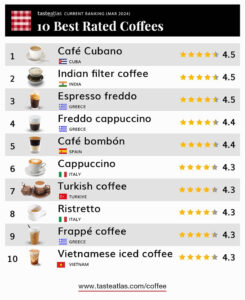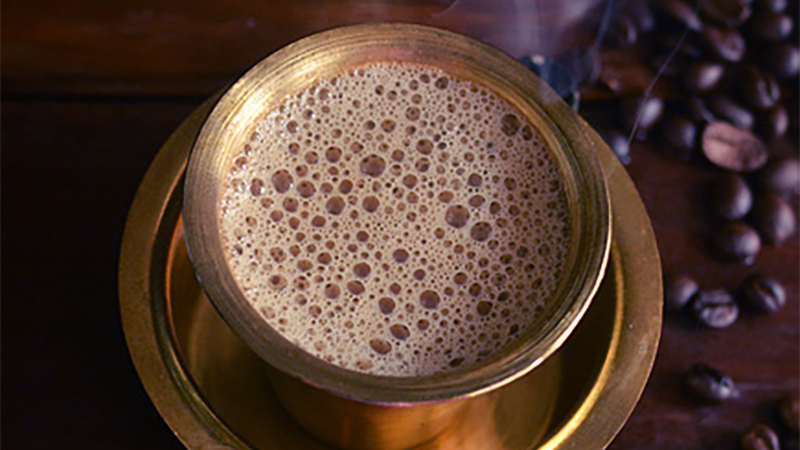TasteAtlas, a global SaaS (Software as a Service) platform and a experiential travel online guide for traditional food “that collates authentic recipes, food critic reviews, and research articles about popular ingredients and dishes”, and which calls itself “an encyclopedia of flavors”, has just ranked Indian filter coffee as being the No 2 in the world… and that is a big deal for a country where, till pre-liberalisation, ‘coffee culture’ was considered too posh to be endemic.
Other than its chicory piquancy, the great thing about drinking filter coffee (also called ‘kaapi’ in south India, where three states — Karnataka, Kerala and Tamil Nadu — produce coffee beans) is its unpretentiousness. You don’t have to stare at a bob of micro-foamed latte art and feel guilty about dismantling it with a supressed slurp. Or make a trip to a café where you compulsively check out the quality of a demitasse cup. Or indulge in a banter (with your coffee mate) as to whether caffeine kicks are better served without dairy — or with it, as long as it’s soy milk.
The south Indian filter coffee is unabashedly ingenuous, and you have absolutely no compunction that there may be poor etiquette on display as you disembogue swathes of piping hot liquid from a functional steel (or brass) tumbler into the dabarah (the accompanying high-rimmed saucer), and back into the tumbler in an effort to cool it down a bit… and then instead of delicately sipping while holding a cup’s ear-shaped handle, you simply hold the tumbler in your hand and quaff away.

Here are some cool things you need to know about the cup that cheers and makes India proud.
· Mixing chicory with coffee — which adds a dash of pungency — is what gives Indian filter coffee its distinct and full-bodied flavour. Added trivia: the French and the British had started the practice of mixing chicory with coffee when coffee was in short supply during World War I, and the practice was imbibed by Indians during the Raj.
· Filter coffee is a great source of potassium, and is rich in antioxidants. Drink up (in moderation) for good health.
· The filter coffee apparatus is a percolator (made of either steel or brass) with two chambers, and works like a French press, but with a special filter than makes a concentrated decoction, which is mixed with milk and sugar and then served.
· In south India, it’s known as ‘kaapi’.
· Filter coffee is best enjoyed for breakfast with crisp dosas and chutneys, or soft idls and sambhar, and all restaurants that serve south Indian breakfasts excel in making it.
At the end of January this year, TasteAtlas had named masala chai as the “Second-Best Non-Alcoholic Beverage In The World” for 2023-24, and went to great lengths to explain how ‘chai’ has set itself apart from the generic tea with its added layers of nuances spiced with free-flowing emotions. Although ubiquitous all over India, masala chai — thanks to is intonation and inflection — is associated with Hindi-speaking north India. Now, with filter coffee joining ranks with masala chai, it’s been a delicious conflation of south meets north to drum up a gold standard in Indian cuisine worldwide. Let’s drink to that. – The writer is Consulting Editor of nrifocus.com


Leave a Reply